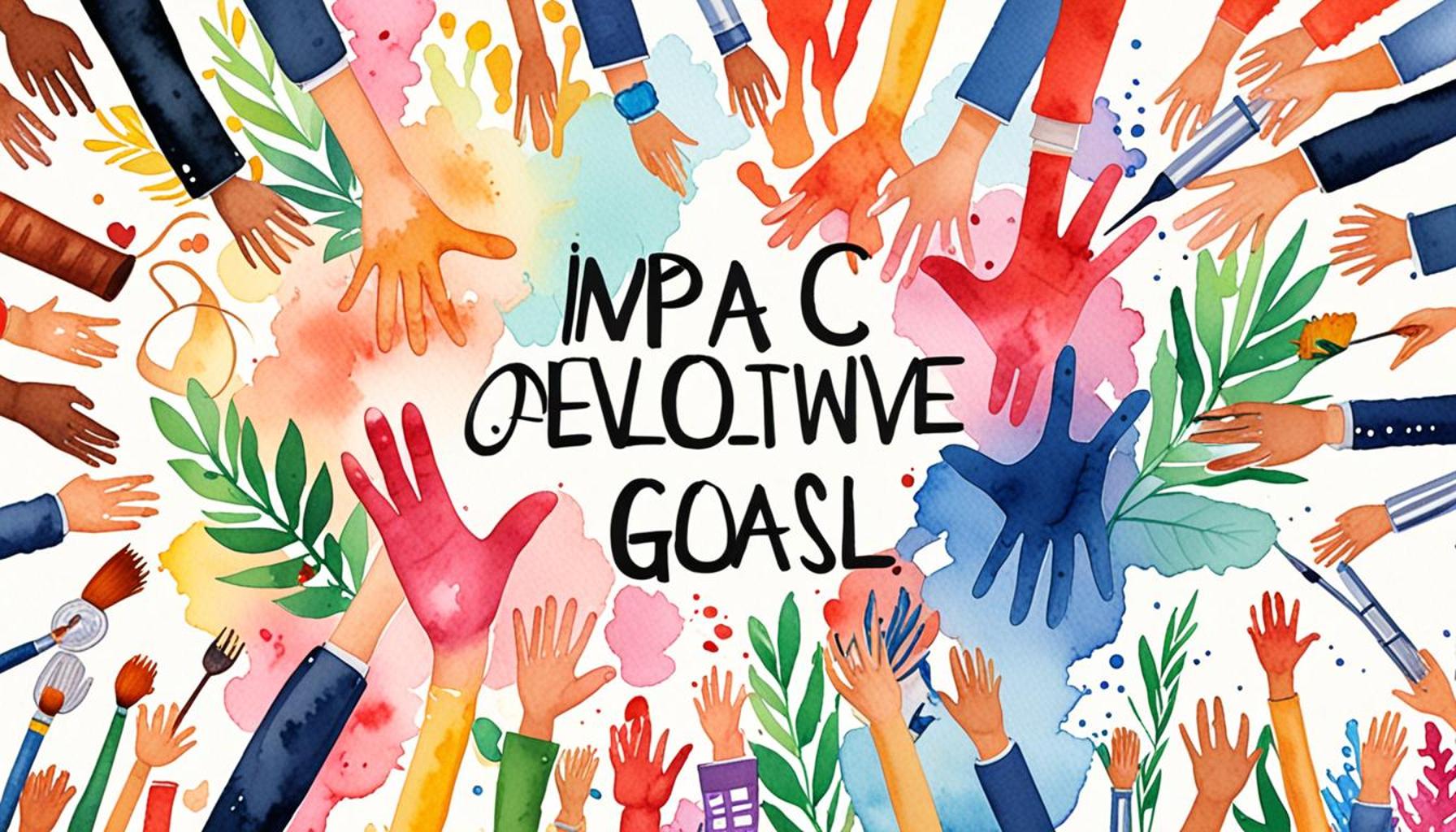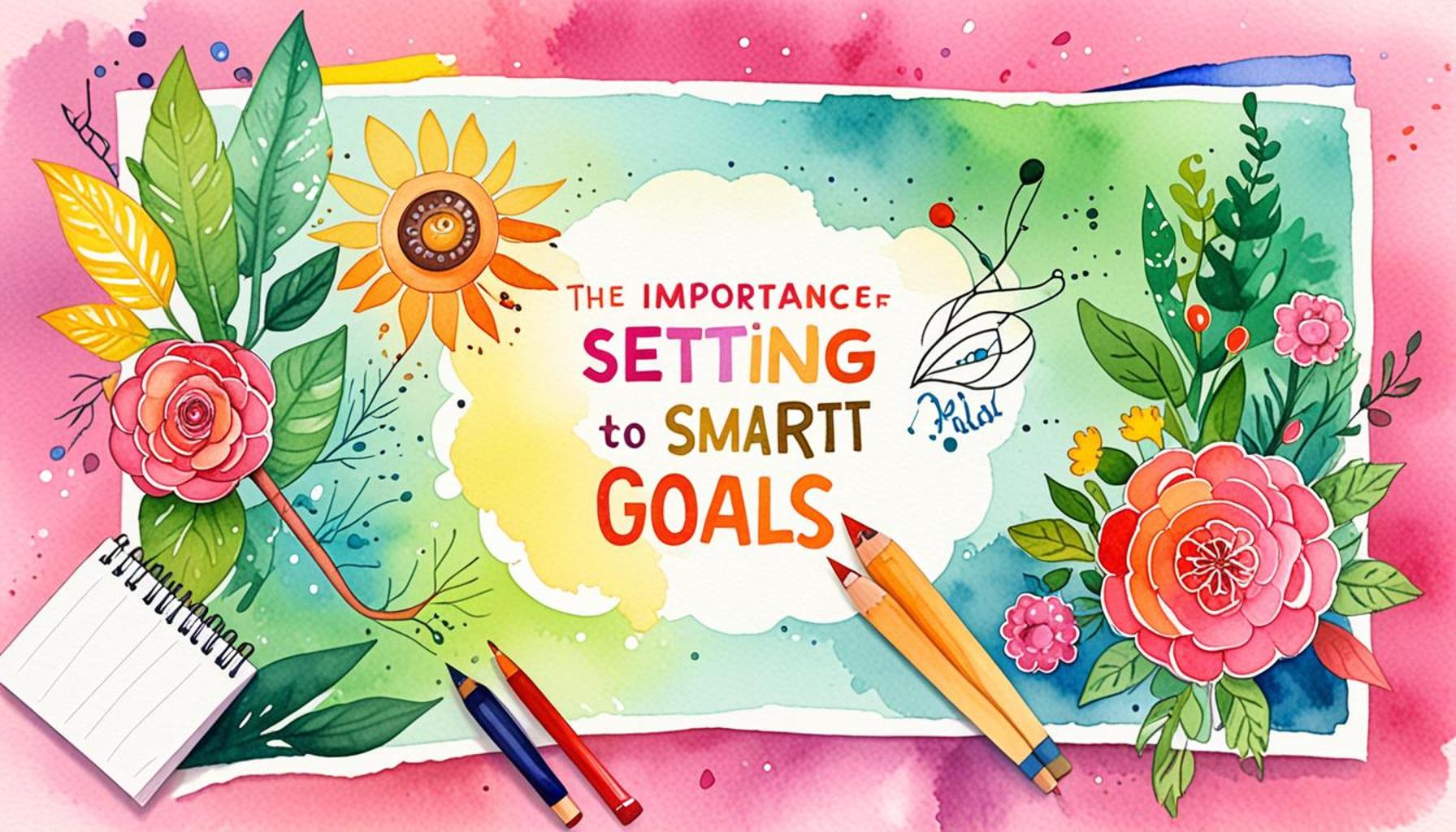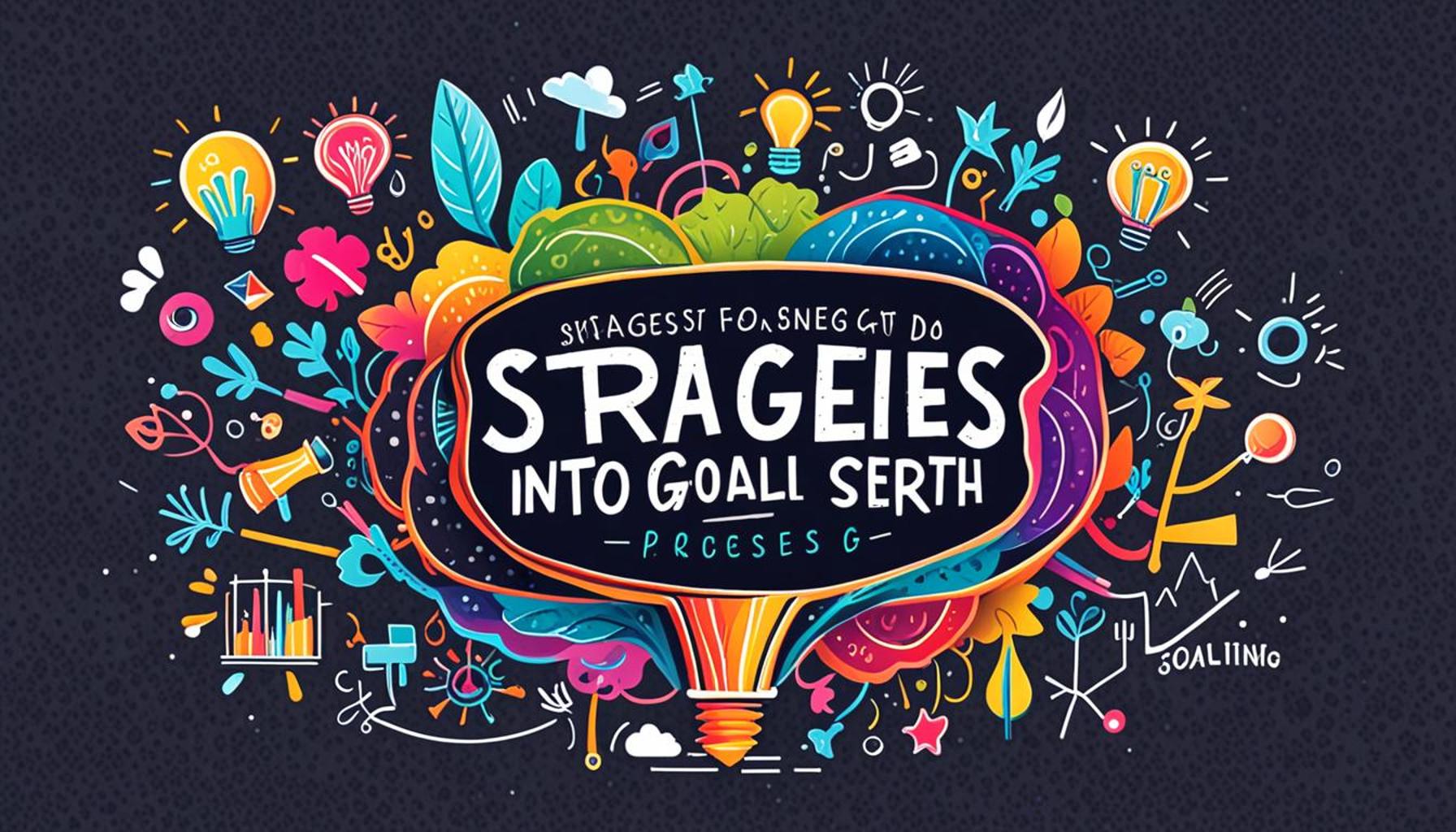The impact of defining collaborative goals in work environments to promote a culture of growth

Understanding the Dynamics of Collaborative Goals
In today’s fast-paced work environments, the importance of defining collaborative goals cannot be overstated. Organizations across Nigeria are beginning to realize that setting clear, collaborative objectives is foundational to cultivating a culture of growth. This approach not only aligns teams but also fosters an environment of mutual support and innovation. It serves to build bridges between diverse team members, enabling them to cooperate effectively, particularly in a cultural melting pot like Nigeria, where different backgrounds can lead to varied perspectives and innovative ideas.
Benefits of Collaborative Goals
Focusing on collaborative goals can drive tremendous advantages within a workplace:
- Enhanced Communication: Clear goals improve dialogue among team members, breaking down silos. For instance, in a Nigerian company where teams may consist of individuals from different regions, defined objectives encourage open communication about challenges and ideas.
- Increased Engagement: Employees feel more invested in their work when they contribute to shared objectives. This is especially vital in Nigeria’s economic landscape, where job satisfaction often correlates with employee retention and productivity.
- Better Resource Allocation: Teams can more effectively utilize their strengths and skills. By recognizing individual talents within collaborative frameworks, organizations can leverage these variations to enhance overall performance.
These benefits are particularly relevant in Nigeria’s diverse workplace landscape, where teams often consist of varied skill sets and perspectives. By fostering a culture of growth, organizations can empower employees to reach their full potential. For example, organizations like Dangote Group and Nigerian Breweries have successfully implemented collaborative goal-setting approaches, yielding remarkable synergy and innovation in their operations.
A Path to Innovation
Collaborative goals not only promote teamwork but also pave the way for innovation. When teams unite towards common objectives, creativity flourishes, leading to:
- Problem-solving: Different viewpoints stimulate unique solutions. In a country where entrepreneurship is booming, collective brainstorming can lead to groundbreaking innovations that address local needs.
- Adaptability: Teams become more resilient to change. The fast-paced nature of markets in Nigeria requires companies to be agile, and collaboration can enhance their ability to pivot when necessary.
- Competitive Edge: A collaborative culture positions companies advantageously in the market. For instance, tech start-ups in Lagos that engage in collaborative goal-setting have outperformed competitors through shared knowledge and mutual support.
As we delve deeper into the impact of defining these goals, it is essential to consider how investing in collaborative frameworks can lead to sustainable success. Organizations stand to benefit immensely by instituting regular check-ins, sharing success stories, and creating a supportive environment in which creativity is not just encouraged but celebrated.
LEARN MORE: This related article may interest you
The Transformational Role of Goal Clarity
Defining collaborative goals in the workplace acts as a compass for employees, providing clear direction and purpose. When these goals are established collaboratively, they are more than mere statements of intent; they become shared visions that inspire collective action. This clarity is especially important in Nigeria’s bustling business sector, where the convergence of diverse cultures and ideas can often lead to confusion if not guided by a coherent framework.
Identifying Shared Values and Objectives
One of the first steps in creating collaborative goals is identifying shared values and objectives among team members. This process requires active participation and open dialogue, encouraging employees to voice their perspectives and contributions. In Nigerian organizations, where globalization meets local practices, aligning on common goals fosters a cohesive team identity. It is essential for leaders to engage with their teams, facilitating discussions that highlight:
- Diversity of Thought: Every member brings unique insights rooted in their backgrounds, which can spark innovative solutions to challenges.
- Collective Ownership: When teams co-create goals, they develop a sense of ownership and accountability, significantly enhancing commitment to the tasks at hand.
- Alignment with Organizational Vision: Collaborative goals should resonate with the broader objectives of the organization, ensuring that every team member is working towards a common mission.
The essence of these collaboratively defined goals lies in their ability to create a unified front in tackling both internal and external challenges. For instance, companies like Access Bank have effectively harnessed teamwork by outlining goals that align with their corporate social responsibility initiatives, thereby fostering community engagement while also driving business success. Such strategies highlight how collaborative objectives can resonate deeply within local contexts, enabling organizations to navigate the complexity of the Nigerian market with agility.
Building Trust and Fostering Relationships
Goal setting in collaboration also plays a pivotal role in building trust among team members. Trust is the cornerstone of effective teamwork, and when people feel secure in their roles and confident in their contributions, the potential for innovation heightens. In Nigeria, where traditional hierarchies can sometimes stifle participation, creating an environment where individuals feel valued leads to:
- Open Dialogue: Encouraging feedback and discussion helps to cultivate a culture of transparency, crucial for addressing issues early.
- Psychological Safety: Employees must feel safe to share their ideas without the fear of ridicule or backlash, significantly advancing the creative process.
- Long-term Collaboration: As relationships strengthen, teams become more resilient, paving the way for ongoing partnerships that can weather market fluctuations.
As we further explore the implications of collaborative goal-setting, it becomes evident that aligning objectives is an investment not only in employee engagement but also in the sustainable growth of the organization. By creating a shared understanding of purpose and direction, companies in Nigeria can unlock the vast potential that lies within their teams, subsequently elevating the overall organizational performance.
| Advantage | Description |
|---|---|
| Enhanced Team Collaboration | Defining collaborative goals leads to better synergy among team members, fostering a sense of unity. |
| Increased Accountability | When goals are shared, team members feel a greater sense of responsibility for their contributions, driving performance. |
| Improved Innovation | Collaborative environments encourage creative problem solving, leading to innovative solutions and ideas. |
| Stronger Culture of Trust | Setting collaborative goals cultivates a trusting atmosphere, allowing individuals to express ideas freely. |
The fostering of a growth-oriented culture within workplaces relies heavily on the establishment of collaborative goals. This process not only outlines clear objectives but also encourages every employee to contribute actively towards a shared vision. Such environments see higher levels of engagement, as team members become more invested in the collective success of the organization. For instance, research shows that companies that prioritize collaborative goal-setting often outperform their competitions by over 20%. As teams unite under common objectives, the resultant atmosphere not only enhances productivity but also drives personal career growth, making it a pivotal organizational strategy. Furthermore, as team members learn to communicate effectively and support each other’s ideas and projects, they become more adaptable, acquiring skills that are essential in today’s ever-changing work landscapes. This adaptation fosters resilience, enabling teams to tackle challenges head-on, promoting not just individual growth but organizational success as well.
SEE ALSO: Click here to read another article
Enhancing Employee Engagement and Motivation
Another significant impact of defining collaborative goals is the enhancement of employee engagement and motivation. When workers feel that they are a crucial part of the goal-setting process, their intrinsic motivation skyrockets. In Nigeria’s highly competitive business landscape, organizations can leverage this by integrating employee input into goal formation. For instance, companies like Dangote Group have been celebrated for their employee-first strategies, which include soliciting feedback on operational objectives. This practice not only shows respect for employees’ opinions but also fosters a sense of purpose, spurring them to strive for excellence.
Empowering Individual Contribution
Setting collaborative goals empowers employees to take ownership of their roles and responsibilities. This empowerment is quintessential in an economy like Nigeria’s, where creativity and resourcefulness can lead to groundbreaking solutions. Organizations that foster this sense of ownership experience:
- Increased Productivity: Employees who feel empowered tend to put in the extra effort, knowing their contributions directly impact the team’s success. For instance, in sectors like technology and finance, where teams often work on projects with tight deadlines, empowered employees excel in delivering results efficiently.
- Innovation: A collaborative approach to goal-setting encourages workers to think critically and innovatively. In Nigeria’s vibrant start-up culture, collaboration can lead to unique products and services that address local challenges, such as fintech solutions that provide banking access to underserved populations.
- Retention of Talent: When individuals see their roles as integral to the achievement of shared goals, they are less likely to seek opportunities elsewhere. This is crucial in Nigeria, where skilled talent is highly sought after by both local and foreign companies.
Continuous Feedback Mechanisms
Additionally, collaborative goal-setting paves the way for establishing continuous feedback mechanisms. This aspect is vital for continuous improvement, particularly in Nigeria’s rapidly changing economic landscape. With collaborative goals in place, feedback is not just a formality; it becomes an ongoing dialogue that allows teams to adjust strategies and tactics in real-time. Companies such as Konga have exemplified this approach by implementing agile methodologies that rely on regular check-ins and adjustments based on team feedback, thus enhancing their ability to innovate and respond to consumer needs promptly.
Moreover, fostering a culture of feedback leads to increased clarity over expectations. Employees are better able to align their individual tasks with team objectives, resulting in a more synchronized workflow. In Nigerian work environments, where communication can sometimes be fragmented, establishing a culture of consistent feedback ensures that all team members are on the same page and feel valued.
Facilitating a Learning Culture
Lastly, the commitment to collaborative goals facilitates the development of a learning culture within organizations. In Nigeria, where continuous learning and adaptation are crucial for survival in a dynamic market, fostering this culture through collaboration can lead to:
- Professional Development: Employees can identify personal and collective learning objectives that directly contribute to achieving team goals, thus tying personal growth to organizational success.
- Sharing Knowledge: Collaboratively defined goals encourage knowledge sharing, as team members discuss strategies and best practices. This can be especially beneficial in tackling complex issues like logistics and distribution, particularly in Nigeria’s vast terrain.
- Adaptability: A culture of learning promotes adaptability, enabling organizations to pivot and innovate as market demands shift, thereby ensuring long-term relevance.
The integration of collaborative goal-setting within Nigerian organizations is not just about achieving targets; it is a transformative approach that promotes a thriving culture of growth, fostering enhanced engagement, empowerment, continuous feedback, and learning among employees.
LEARN MORE: This related article may interest you
Conclusion
In conclusion, defining collaborative goals in work environments is a powerful catalyst for fostering a culture of growth that benefits both employees and organizations alike. As explored throughout this article, the advantages of such an approach are multi-faceted, encompassing enhanced engagement, motivation, and a heightened sense of ownership among team members. Organizations in Nigeria that actively involve employees in the goal-setting process, such as through initiatives seen in companies like Dangote Group and Konga, not only cultivate an atmosphere of respect but also nurture a workforce that is aligned, empowered, and innovative.
Furthermore, the establishment of continuous feedback mechanisms creates a dynamic workplace where real-time adjustments and learning are prioritized. This responsiveness is crucial in Nigeria’s fast-paced business environment, where adaptability can spell the difference between success and stagnation. Embracing a culture where knowledge sharing and professional development are encouraged leads to improved adaptability and creative problem-solving, essential traits for navigating the challenges of today’s market.
Ultimately, organizations that adopt a collaborative approach to goal-setting do more than achieve targets; they build resilient teams equipped for the future. As Nigerian companies strive to compete on a global stage, prioritizing collaborative goals will not only enhance individual performance but also lay the groundwork for sustained organizational success. It is essential for stakeholders across all levels to recognize the significance of this strategic shift and invest in practices that foster this collaborative spirit for lasting growth.


